

AGRICULTURE
Farmers at Savelugu record increase in soya bean production
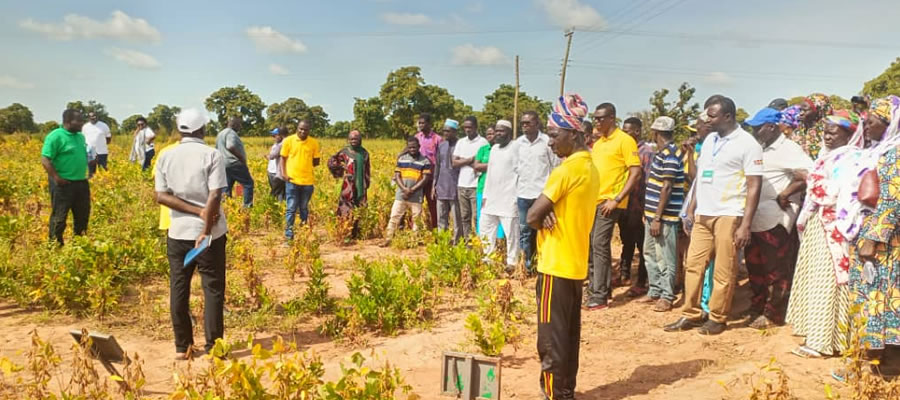
Date Created : 11/12/2024 : Story Author : Albert Futukpor/Ghanadistricts.com
They said this had increased their incomes enabling them to support their families and improved their socio-economic well-being.
They shared their experiences when a team from the Sustainable Soyabean Production in Northern Ghana (SSPiNG) project supporting these farmers, visited their soyabean fields at Libga and Yiworgu in the Savelugu Municipality of the Northern Region, to assess the impact of new soybean technologies on their (farmers) production.
Madam Ayisha Abdulai, one of the farmers from the Savelugu Municipality, said through the technologies, she had gained more yields compared to previous years and had expanded her acreage as well for increased production.
Mr. Samuel Bakaweri, Managing Director of BATBAK Services, one of the beneficiaries, said through the support of the SSPING project, his business and those of 1,500 farmers under him were empowered through capacity-building training, matching grant support for multipurpose threshers, and market linkages, which had resulted in increased production and income.
Under the SSPING project, the farmers were earlier introduced to climate-resilient technologies including optimal fertilizer application, early maturing and drought- resistant soybean varieties, and optimal planting windows to help them to adapt to climate change and boost production.
The SSPiNG project seeks to support farmers to sustainably increase the production of soyabean to meet the rising demand in the country as well as enable rural households to raise their incomes and improve food security on a sustainable basis.
It is being implemented by the International Institute of Tropical Agriculture (IITA) and Yara Ghana in partnership with the Ministry of Food and Agriculture, Wageningen University and Research in the Netherlands and Felleskjøpet Rogaland Agder in Norway. It is funded by the Norwegian Agency for Development Cooperation (NORAD).
The beneficiary districts included Yendi, Saboba, Karaga, Savelugu, Nanton, Gushiegu, West Mamprusi and East Mamprusi, Bawku Municipal, Nabdam, Bawku West, Binduri, Wa East, Sissala West, Sissala East, West Gonja and East Gonja.
Mr. Roland Addo, Focal Person for Soybeans, at the Ministry of Food and Agriculture, said since 2017, soybean production in the country has increased by 150,000 metric tonnes.
He said the project had also led to the adoption of improved farming practices with over 26 threshers given to smallholder farmers to thresh their soybeans.
Professor Samuel Adjei-Nsiah, Coordinator of SSPiNG, was happy about the project’s impact on farmers, saying the about 100 planters and 26 threshers supplied to farmers had helped to plant soybean on time and with less labour and reduced post-harvest losses and increased yields, respectively.
Madam Theresa Randolph, Country Manager of Yara Ghana was also happy about the increased yields and said the Yara Legume Fertilizer was designed to enhance crop yields and productivity of soybean and other legume crops.
Madam Jessica Nyman, Senior Advisor at NORAD was hopeful that the increased production would help support the industrialisation agenda of Ghana.
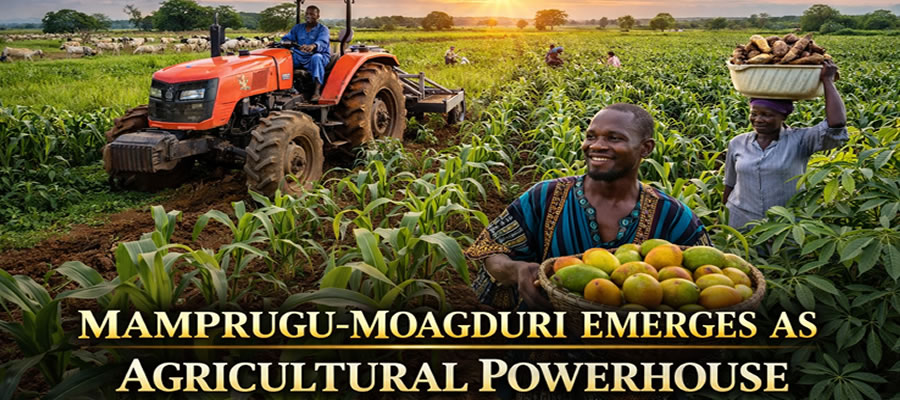
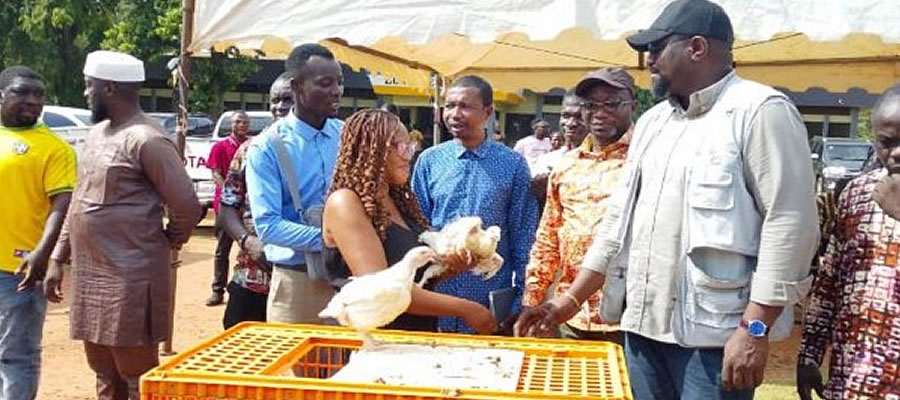
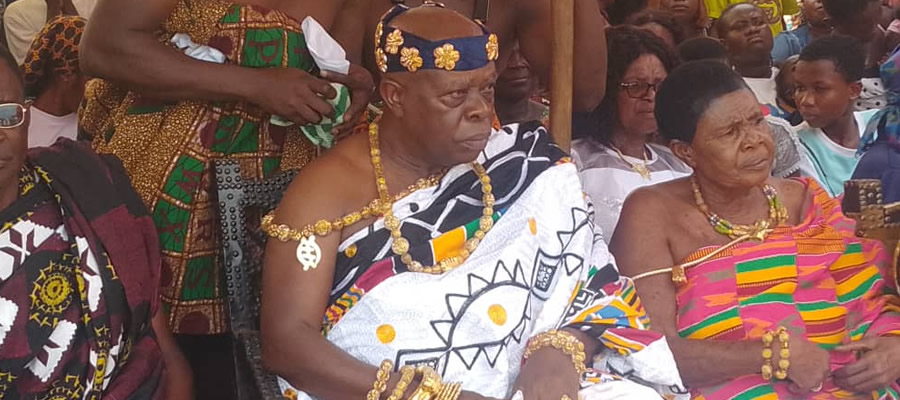
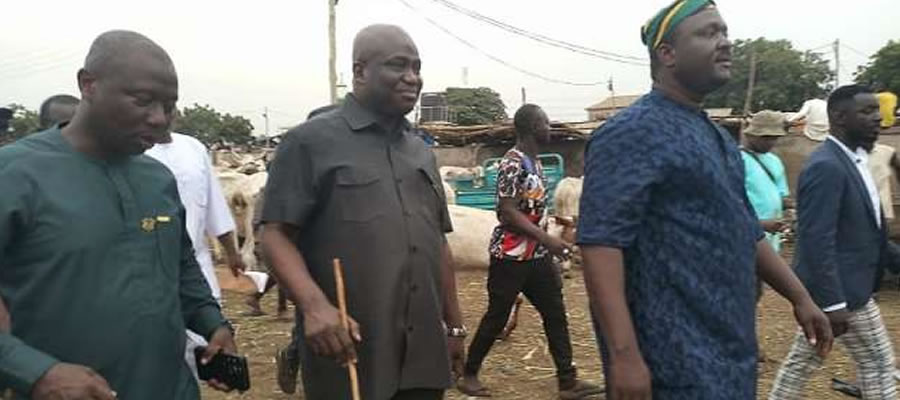
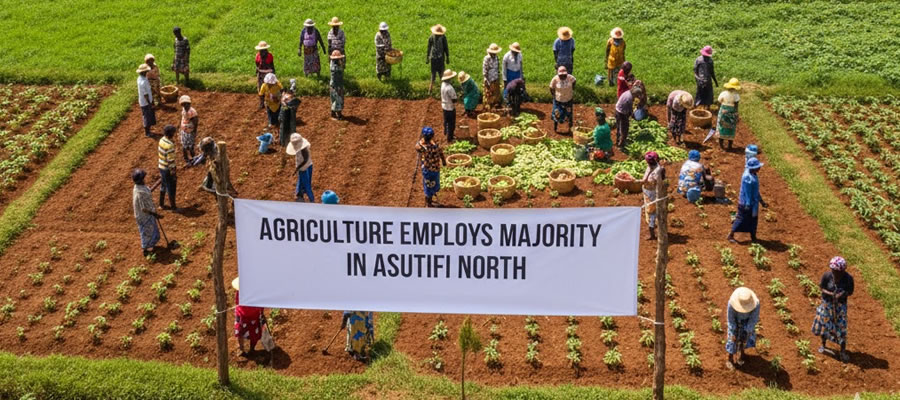
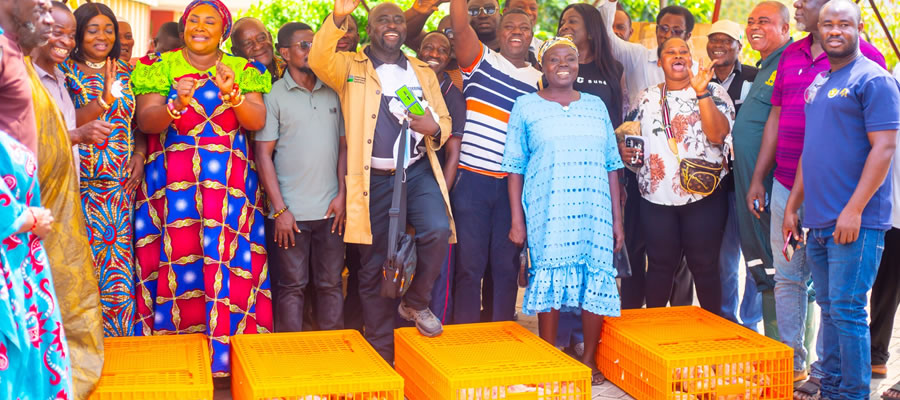
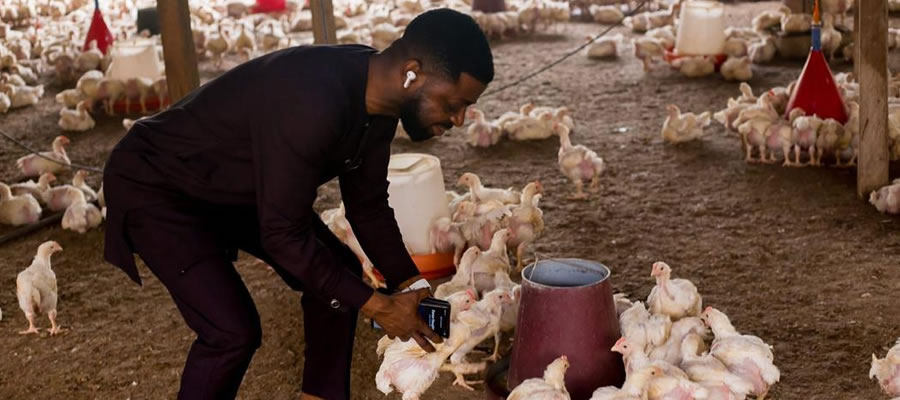
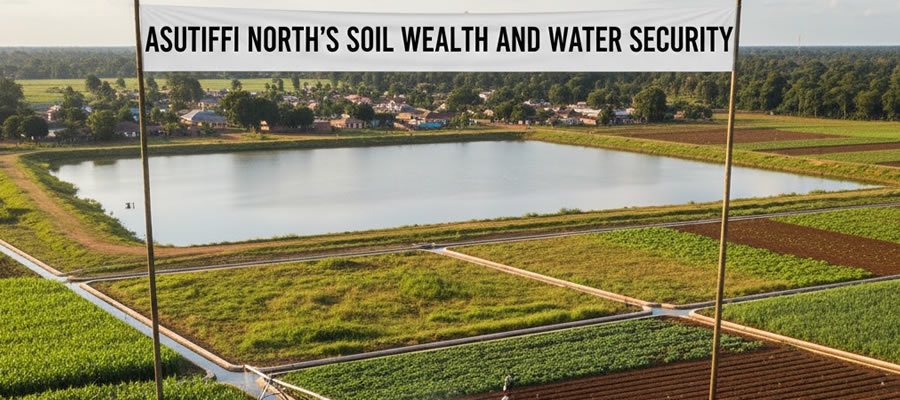
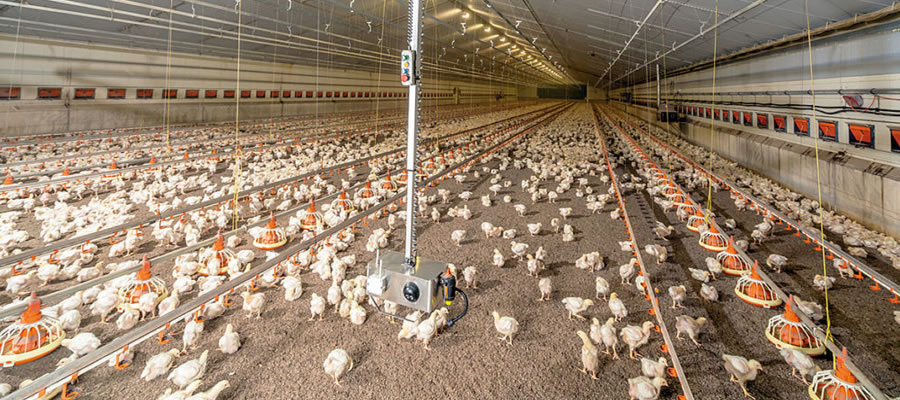
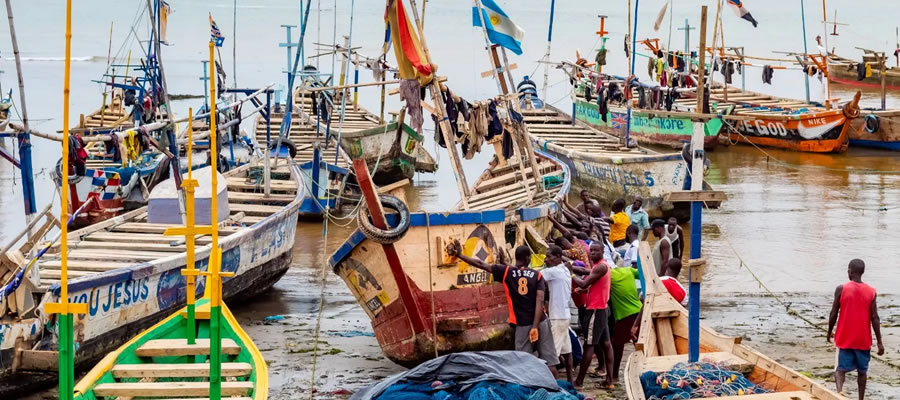
 facebook
facebook
 X
X
 Youtube
Youtube
 instagram
instagram
 +233 593 831 280
+233 593 831 280 0800 430 430
0800 430 430 GPS: GE-231-4383
GPS: GE-231-4383 info@ghanadistricts.com
info@ghanadistricts.com Box GP1044, Accra, Ghana
Box GP1044, Accra, Ghana